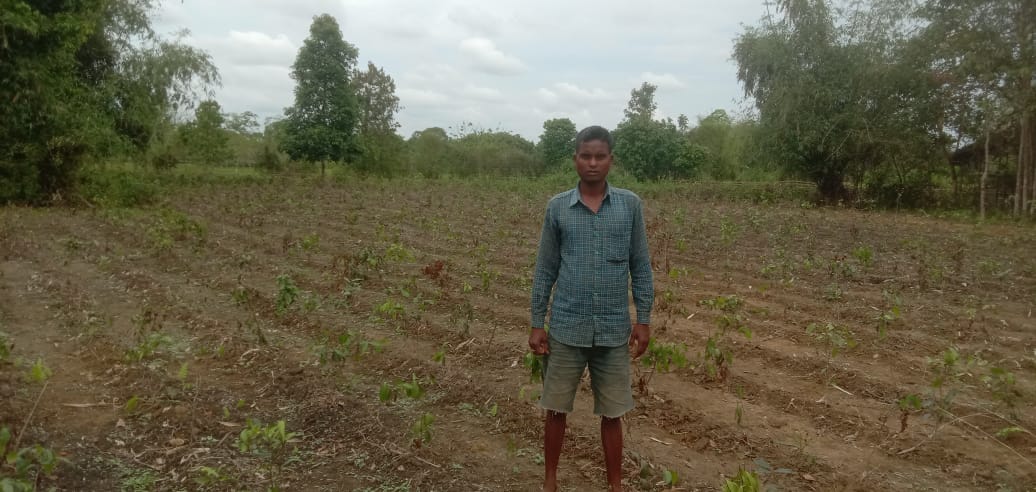INDIA: Salesian Missions donor funding aids 13 families with tea saplings to start tea gardens

(MissionNewswire) The Anma Integrated Development Association (AIDA) was able to support 13 farmers with tea saplings thanks to donor funding from Salesian Missions, the U.S. development arm of the Salesians of Don Bosco. The tea project was developed in 2008 to help tea garden laborers in Assam, a state in northeastern India. The area is known for its wildlife, archeological sites and tea plantations.
India is one of the largest tea producers in the world with close to 70 percent of its tea consumed within India itself. The Indian tea industry has grown to own many global tea brands and has evolved into one of the most technologically equipped tea industries in the world. The districts of Golaghat, Sibsagar, Dibrugarh and Tinsukia in Assam have a large number of tea estates.
The tea estates are tended to by laborers, who despite working long hours often do not earn enough wages to meet their basic needs or escape poverty. Many tea laborers own small parcels of land but, for various reasons, leave the land uncultivated while they leave home to work at larger tea estates. In times of financial crisis, they are often forced to mortgage their land for small loans and when they are unable to repay the loans, the land is forfeited. Salesian missionaries in India, aware of this difficult situation, are working to provide opportunities for tea laborers to break the cycle of poverty.
“The goal of the project is to help tea laborers begin to cultivate their land, allowing them to become owners of their own small tea gardens and develop a long-term sustainable income,” said Father Gus Baek, director of Salesian Missions. “Tea laborers are provided start-up assistance either through financial resources or through the donation of tea saplings, which helps them to develop their own business and gain financial security.”
Laborers are also taught business and technical skills relating to the tea market and, capitalizing on their years of working on larger tea estates, they can develop a sustainable income to help them escape poverty. Many former laborers have developed stronger self-confidence and a renewed sense of dignity through the project.
One recipient is Manglu Bhumij, age 39, who has six family members including his mother, wife and three children. He is a daily wage earner and his wife looks after household work along with managing a small tea garden. Bhumij had more than an acre of unutilized land when he heard about the opportunity through AIDA. He immediately applied and prepared his land for cultivation. Bhumij said it was an unexpected opportunity for him to get financial support within a short time. He also thanked the AIDA staff for providing ideas for multi-cropping along with tea. Soon after the planting, he cultivated dal in his tea garden for extra income.
The COVID-19 pandemic has strained tea laborers financially because they were out of work during the lockdown. The lockdown started during the first plucking of tea leaves, which forced tea garden laborers to lose two months of income. Tea farmers supported through AIDA also suffered during the lockdown period since most are daily wage workers. All the beneficiaries, however, have a ration card under the national food security program so they did have some added support.
India has the world’s fourth largest economy but more than 22 percent of the country lives in poverty. About 31 percent of the world’s multidimensionally poor children live in India, according to a report by the Oxford Poverty and Human Development Initiative. A multidimensionally poor child is one who lacks at least one-third of 10 indicators, grouped into three dimensions of poverty: health, education and standard of living.
Salesian missionaries living and working in India place special emphasis on rescuing and rehabilitating children engaged in child labor. There are Salesian-run programs throughout the country that have helped hundreds of thousands of vulnerable youth through the years, and this work continues today.
###
Sources:
Photo courtesy of Salesian Missions (contact for usage permissions)
Salesian Missions – India
World Bank – India





